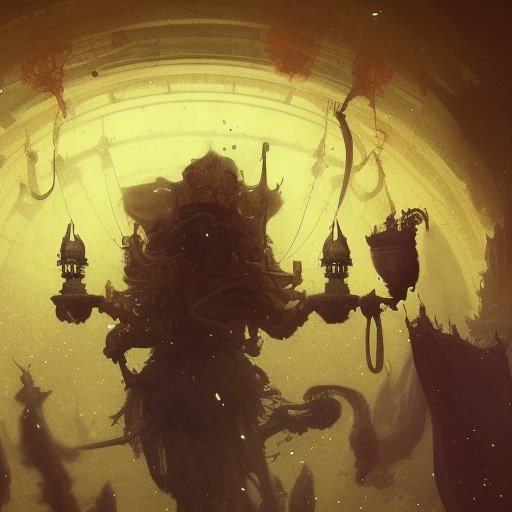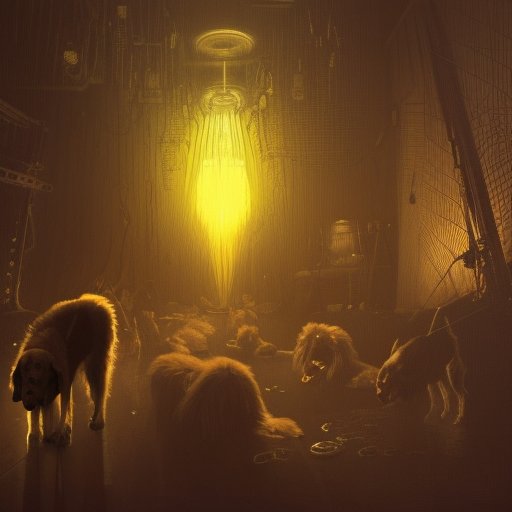
The future is full of potential, but also uncertainty. As we navigate the complex and ever-changing landscape of emerging technology and cultural practices, we must pause to reflect on the traditions that have carried us this far. One such tradition is that of April Fool’s Day. In this article, we explore the history of this beloved practice and its evolution in a futuristic context. How will we celebrate this holiday in the age of AI and computing? What are the pros and cons of April Fool’s Day as it evolves alongside our society? Join us for a journey through time and space as we examine the past, present, and future of April Fool’s Day.
I. Introduction
Greetings, fellow travelers of the future! As we journey through space and time, we encounter many traditions and practices that have stood the test of time. One such tradition that has evolved over the years is April Fool’s Day.

This age-old holiday has been celebrated for centuries, bringing laughter and mischief to those who participate. But what does April Fool’s Day mean in a futuristic context? As we explore the new frontiers of AI and computing, we must ask ourselves how this beloved holiday will evolve alongside us.
It is only natural for our traditions to evolve as our society evolves. We now live in a world where black mirror-esque technology has become a reality, where hacking and cyber security are pressing concerns. In this ever-changing landscape, how will we celebrate April Fool’s Day in a way that is safe, ethical, and sustainable?
Perhaps we will find new ways to prank ourselves and our loved ones with the help of advanced computing and engineering. Maybe April Fool’s Day will transform into a time of reflection and contemplation, as we grapple with the consequences of our technological progress.
In the following sections, we will dive into the history, culture, and evolution of April Fool’s Day. We will examine the pros and cons of this holiday in a futuristic context, from the vantage point of the 80s science fiction writer. Join us as we embark on a journey through time and space, exploring the complex web of technology, philosophy, and human nature that surrounds April Fool’s Day.
II. The Evolution of April Fool’s Day in History and Culture
Ah, the storied history of April Fool’s Day! Let us set the dial back to a time before the internet, before computers, and even before zeppelins roamed the skies.

The origins of this beloved holiday can be traced back to ancient Rome, where a festival called Hilaria was celebrated in late March. This festival was a time of joy and celebration, marked by pranks and mischief. Over time, Hilaria evolved into the Christian holiday of Easter, but the tradition of pranking remained.
In medieval Europe, there was a tradition called “fool’s errands,” where people were sent on absurd and pointless tasks on April 1st. The idea was to fool and prank someone by making them believe they were doing something important or meaningful.
As printing technology advanced in the 16th century, so did the popularity of April Fool’s Day. Newspapers and pamphlets began printing hoax stories and fake advertisements, playing into the public’s love of pranks and folly.
In the 20th century, April Fool’s Day became a popular holiday in the United States and other Western countries. It was a time for practical jokes and silliness, but it also became a marketing opportunity for companies looking to cash in on the holiday’s popularity.
But as we look towards the future, we must ask ourselves: will April Fool’s Day continue to be a beloved tradition, or will it fade into obscurity as technology advances? Will our love of pranks and mischief evolve alongside our society, or will it become a relic of the past? Only time will tell.
III. April Fool’s Day in the Age of AI and Computing
As we journey further into the vast and uncharted territories of technology, we must brace ourselves for the innovations and challenges that lie ahead. In the age of AI and computing, April Fool’s Day takes on a new dimension. The pranks and jokes of the past may no longer suffice in a world where cyber security and hacking are serious concerns.

Some may argue that April Fool’s Day should be abolished in the face of these new dangers, while others see it as an opportunity to explore new forms of humor and creativity. With the help of advanced computing and engineering, we may be able to devise elaborate and sophisticated pranks that were once unimaginable.
But as we explore these new frontiers, we must also be mindful of the potential consequences of our actions. What may seem harmless on the surface can quickly spiral out of control in the interconnected web of technology. We must take into account the ethical concerns surrounding the use of AI and computing in April Fool’s Day pranks.
Additionally, we must examine the impact of these pranks on our society and culture. Will they promote unity and laughter, or instead perpetuate harmful stereotypes and discrimination?
As we ponder these questions, we may find that the concept of April Fool’s Day in a futuristic context is a complex and nuanced one. It is up to us to navigate this landscape with care and consideration, weighing the potential risks and rewards.
In the coming sections, we will delve further into these issues and explore the intricacies of celebrating April Fool’s Day in a world of AI and computing. Join us as we venture forth into the unknown, and see where this journey will take us.
IV. The Pros and Cons of April Fool’s Day in a Futuristic Context
Now that we have explored the origins and potential future of April Fool’s Day in a futuristic context, let’s examine the pros and cons of this peculiar holiday.

On the one hand, April Fool’s Day is a time to let loose, have fun, and enjoy harmless pranks and jokes. It is an opportunity to bring laughter and levity into our lives, even in the face of uncertainty and adversity.
Moreover, April Fool’s Day can serve as a reminder to take ourselves less seriously, to question our assumptions and beliefs, and to embrace the unexpected. In a world where conformity and complacency can run rampant, April Fool’s Day can be a breath of fresh air.
However, there are also some valid concerns about the future of April Fool’s Day. As technology advances and our lives become increasingly intertwined with the digital realm, it becomes easier for pranks and jokes to cross ethical and legal boundaries.
Furthermore, in a world where cyber security is a pressing concern, it is vital to be aware of the potential risks and dangers associated with pranks and hoaxes online. Viral hoaxes and misinformation can have real-world consequences, and we must be vigilant in distinguishing truth from falsehood.
Above all, we must consider the impact of April Fool’s Day on our fellow human beings. What may seem like harmless fun to one person may be hurtful or even traumatic to another. As we navigate the complex web of technological progress and cultural practices, we must be mindful of the ways in which our actions affect those around us.
So, what is the verdict on April Fool’s Day in a futuristic context? As with many things in life, there are trade-offs to consider. However, with careful consideration and responsible behavior, April Fool’s Day can continue to bring joy and merriment into our lives without endangering ourselves or others.
V. Hacking and April Fool’s Day
As technology continues to evolve, so do the ways in which we prank and deceive each other on April Fool’s Day. However, there is a line where the fun of the holiday ends, and the danger of hacking begins.

In a world where cyber security and privacy are of utmost importance, it is crucial to ask: where do we draw the line on the pranks we pull? Hacking someone’s computer, personal information, or even medical devices is not only dangerous but illegal.
The potential consequences of hacking can be catastrophic, from identity theft to compromised infrastructure systems. As the future becomes more interconnected and reliant on technology, the risks associated with hacking only increase.
We must consider the ethical and legal implications of our April Fool’s pranks, especially in a world where the line between reality and the virtual is becoming increasingly blurred. There is a fine balance between harmless fun and dangerous pranks.
As we celebrate April Fool’s Day in the age of AI and computing, it is important to keep in mind the potential risks and unintended consequences of our actions. In a world where cyber hackers have access to powerful technology and nefarious intentions, we need to be mindful of the impact our pranks could have.
Let us not forget the importance of cyber security and the role we all play in keeping each other safe on the internet. Ultimately, the choice is ours — will we use our technology for harmless jests, or dangerous hacking? The future is in our hands.
VI. The Future of April Fool’s Day
As we come to the end of our journey, we must ask ourselves: what does the future hold for April Fool’s Day?

One thing is certain: as our technology and culture continue to evolve, the nature of this holiday will evolve with them. As we explore new frontiers in AI, computing, and engineering, we will undoubtedly find new and innovative ways to prank ourselves and our loved ones.
But the question of safety and ethics looms large. As hacking and cyber security become increasingly pressing concerns, we must find ways to celebrate April Fool’s Day in a way that is both fun and responsible.
Perhaps we will see a shift towards more low-tech pranks, or a push towards more reflective and philosophical modes of celebration. Maybe, just maybe, we will find that the best way to celebrate April Fool’s Day in the future is to reject it altogether, and instead focus on the things that truly matter: human connection, empathy, and compassion.
In the end, the future of April Fool’s Day is in our hands. Whether we embrace it or reject it, celebrate it or ignore it, one thing is certain: this age-old tradition will continue to evolve alongside us, reflecting the complex and ever-changing nature of our society.
As we bid farewell to our journey through time and space, we leave you with this final thought: in a world full of unknowns, let us always remember the power of laughter, the importance of empathy, and the value of tradition. Happy April Fool’s Day, fellow travelers of the future!






